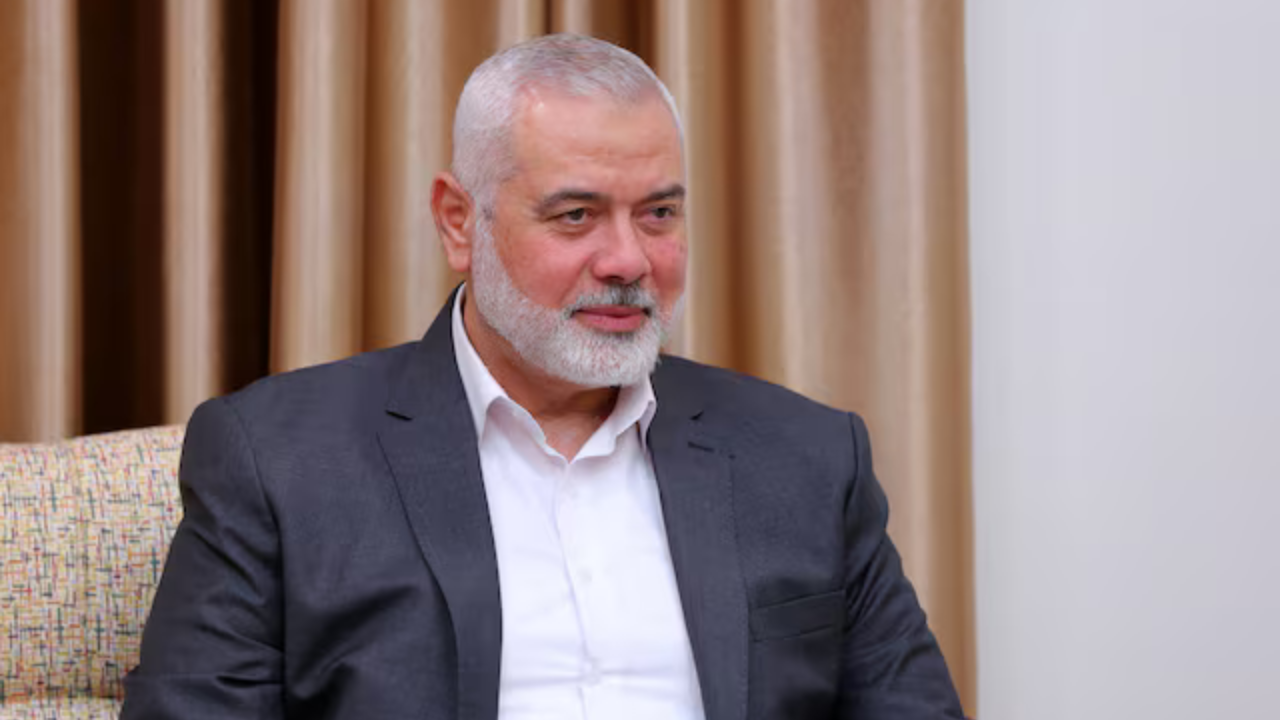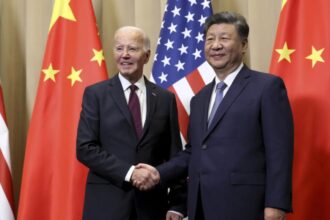Suspicion has immediately fallen on Israel after the assassination of a high-profile individual, although no group has claimed responsibility. This development follows Israel’s vow to target Haniyeh and other Hamas leaders in retaliation for the group’s October 7 attack on Israel.Here is all you need to know about Ismail Haniyeh.
Early life and education
Haniyeh was born to Palestinian parents who were displaced during the 1948 Arab-Israeli War. His early life in a refugee camp exposed him to the hardships faced by Palestinians. This experience shaped his political views and aspirations.
Haniyeh attended United Nations-run schools and later enrolled at the Islamic University of Gaza. He earned a degree in Arabic literature in 1987. During his university years, he became actively involved in student politics.
He led an Islamist student association affiliated with the Muslim Brotherhood, which laid the groundwork for his future role in Hamas.
Rise in Hamas
Ismail Haniyeh’s political career began with the founding of Hamas in 1987 during the First Intifada, a Palestinian uprising against Israeli occupation. His close association with Hamas’s spiritual leader, Sheikh Ahmed Yassin, helped him rise through the ranks. Haniyeh was arrested multiple times by Israeli authorities for his activism, spending significant time in prison during the late 1980s and early 1990s.
In 1992, he was deported to Lebanon with other Hamas leaders but returned to Gaza in 1993 after the Oslo Accords. By 1997, he became the head of Yassin’s office, further solidifying his position within Hamas.
Haniyeh’s leadership during the Second Intifada (2000-2005) and his ability to navigate the political landscape amid internal and external pressures helped him gain prominence within the organisation. His continued association with Sheikh Ahmed Yassin played a significant role in his rise.
Political leadership
Ismail Haniyeh’s most notable political achievement occurred in 2006 when Hamas won a majority in the Palestinian legislative elections. This victory led to Haniyeh becoming the Prime Minister of the Palestinian Authority (PA), although his tenure prompted international condemnation and a freeze on aid due to Hamas’s refusal to renounce violence and recognize Israel.
In June 2007, after a violent conflict with the rival Fatah party, PA President Mahmoud Abbas dismissed Haniyeh, but he continued to govern the Gaza Strip, where Hamas established a de facto administration.
During his tenure, Haniyeh faced multiple challenges such as economic sanctions, military confrontations with Israel, and internal political strife. Despite these difficulties, he maintained Hamas’s control over Gaza. Haniyeh was also involved in significant negotiations, including a prisoner exchange deal in 2011 that secured the release of over 1,000 Palestinian prisoners in exchange for Israeli soldier Gilad Shalit.
Chairman of Hamas Political Bureau
In 2017, Haniyeh was elected as chairman of Hamas’s Political Bureau, succeeding Khaled Mashaal. His leadership has been crucial in shaping Hamas’s policies and strategies, particularly in relation to Israel and the Palestinian Authority. Hamas has sought to remain relevant in Palestinian politics under his guidance, while also managing complex regional alliances with Iran and Turkey.
Haniyeh’s tenure has seen attempts at reconciliation with Fatah. In 2021, an agreement aimed at unifying Palestinian governance was made. However, these efforts have often faced significant challenges, underscoring the deep divisions within Palestinian politics.
Source : Times of India






